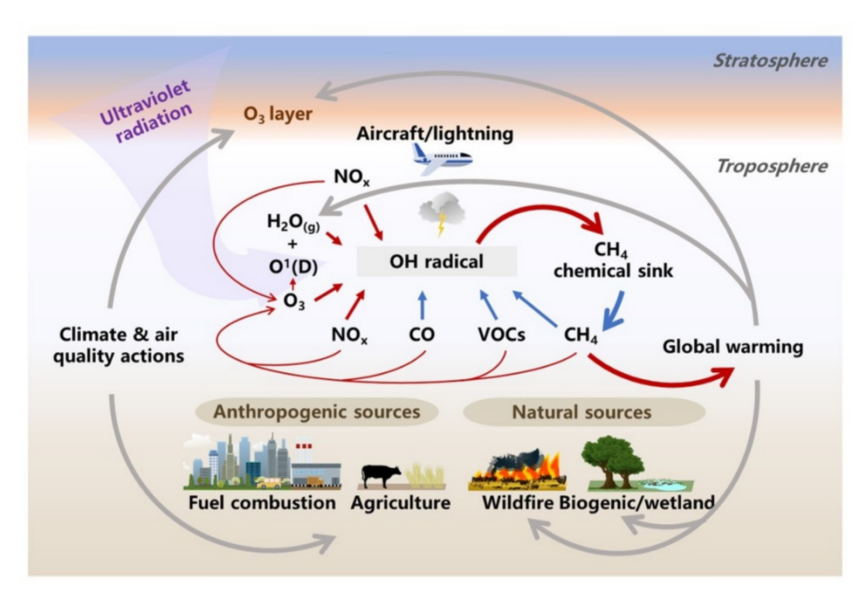2025-06-12 清華大学

<関連情報>
- https://www.tsinghua.edu.cn/en/info/1245/14301.htm
- https://www.nature.com/articles/s41586-025-09004-z
大気汚染は世界のメタン収支の傾向と変動を調節する Air pollution modulates trends and variability of the global methane budget
Yuanhong Zhao,Bo Zheng,Marielle Saunois,Philippe Ciais,Michaela I. Hegglin,Shengmin Lu,Yifan Li & Philippe Bousquet
Nature Published:28 May 2025
DOI:https://doi.org/10.1038/s41586-025-09004-z
Abstract
Air pollution affects climate through various complex interactions1. It perturbs the Earth’s radiative energy balance and alters the atmospheric oxidation capacity, which determines the lifetimes of short-lived climate forcers, such as methane1. A key mechanism in this dynamic is the impact of air pollutants on the hydroxyl radical (OH), the most important oxidant in the troposphere, which accounts for approximately 90% of the methane chemical sink2. However, a comprehensive quantification of the interactions between air pollutants, OH and methane over decadal timescales remains incomplete2. Here we develop an integrated observation-driven and model-driven approach to quantify how variations in key air pollutants influence the methane chemical sink and alter the methane budget. Our results indicate that, from 2005 to 2021, enhanced tropospheric ozone, increased water vapour and decreased carbon monoxide levels collectively contributed to a 1.3–2.0 Tg year−1 increase per year in the global methane sink, thereby buffering atmospheric methane growth rates. This increase in the methane sink was primarily concentrated in tropical regions and exhibited a north–south asymmetry. Periods of high methane growth were typically linked to abrupt OH level declines driven by fluctuations in air pollutants, especially during extreme events such as mega wildfires and the COVID-19 pandemic. Our study suggests a trade-off between O3 pollution control and methane removal mediated by OH and highlights the risk of increasing carbon monoxide emissions from widespread wildfires.



